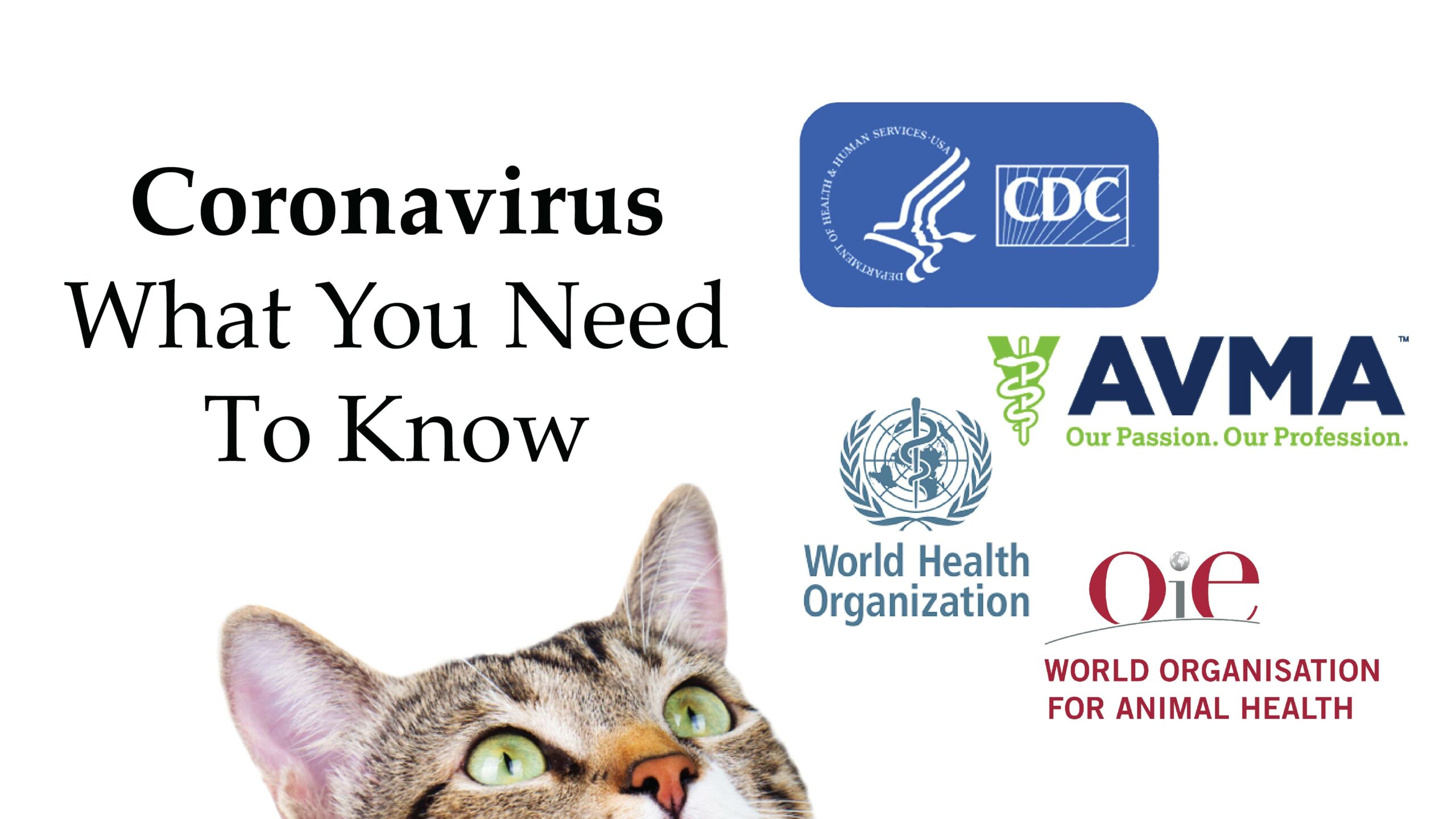We’ve been getting a lot of questions about coronavirus and the health implications for cats. Currently, this is a human health issue. There is no indication that cats can become infected with the coronavirus (SARS-CoV-2) or transmit COVID-19 to humans. The health risk is low in this country but this is currently an active area of interest.
Let’s get our terminology correct before proceeding:
Coronavirus A family of RNA viruses that commonly infects humans and animals. Many cats are exposed to and become infected by a benign coronavirus, resulting in “flu-like” symptoms or no signs at all. In some individual cats, the benign coronavirus can mutate into FIP resulting in death. The coronavirus in the news causing COVID-19 is not the FIP virus.
COVID-19 The disease caused by the coronavirus currently in the news. Wuhan City, Hubei Province of China first reported pneumonia in humans with an unknown cause in December 2019. A new strain of coronavirus was identified as the culprit. Coronavirus Disease 2019 is abbreviated COVID-19.
SARS-CoV-2 The specific coronavirus resulting in the COVID-19 disease in humans was named SARS-CoV-2 on 2/11/20. Person to person spread of the SARS-CoV-2 has been confirmed. [This name may look familiar from past outbreaks of similar viruses: severe acute respiratory syndrome coronavirus SARS-CoV around 2002 & 2003; Middle East respiratory syndrome coronavirus MERS-CoV around 2012.]
and cover your mouth when you cough or sneeze.
On February 28th, 2020 Hong Kong announced that a pet dog had tested “weak positive” for the COVID-19 coronavirus. The dog was not showing any signs related to the coronavirus. At this time there is no evidence that our pets can be infected with the coronavirus. There is no evidence that our pets could be a source for the coronavirus. The dog is currently being quarantined for monitoring. Additional follow up tests will be performed at a later date.
The implications of the “weak positive” result from the dog who was owned by someone infected with the COVID-19 coronavirus is unknown. This could be environmental contamination (i.e. the virus was in the household where the dog was). There may be issues with the test or cross reactivity. This may also indicate an infection.
– World Organisation For Animal Health
– Centers for Disease Control and Prevention
For more information, visit the CDC website, World Health Organization website, World Organisation For Animal Health website or the American Veterinary Medical Association website.
Please follow this blog for more updates in the future. There are many questions still to be answered and more research is needed.

